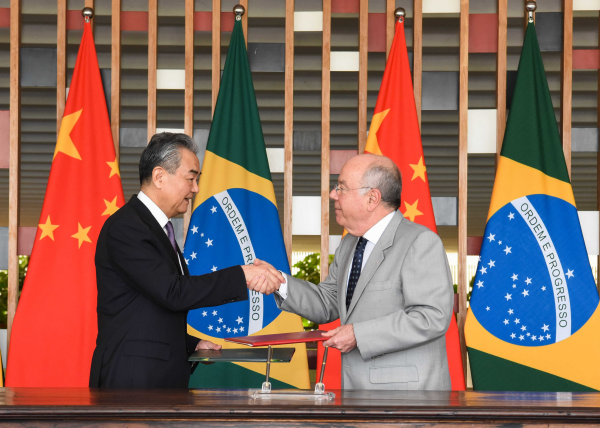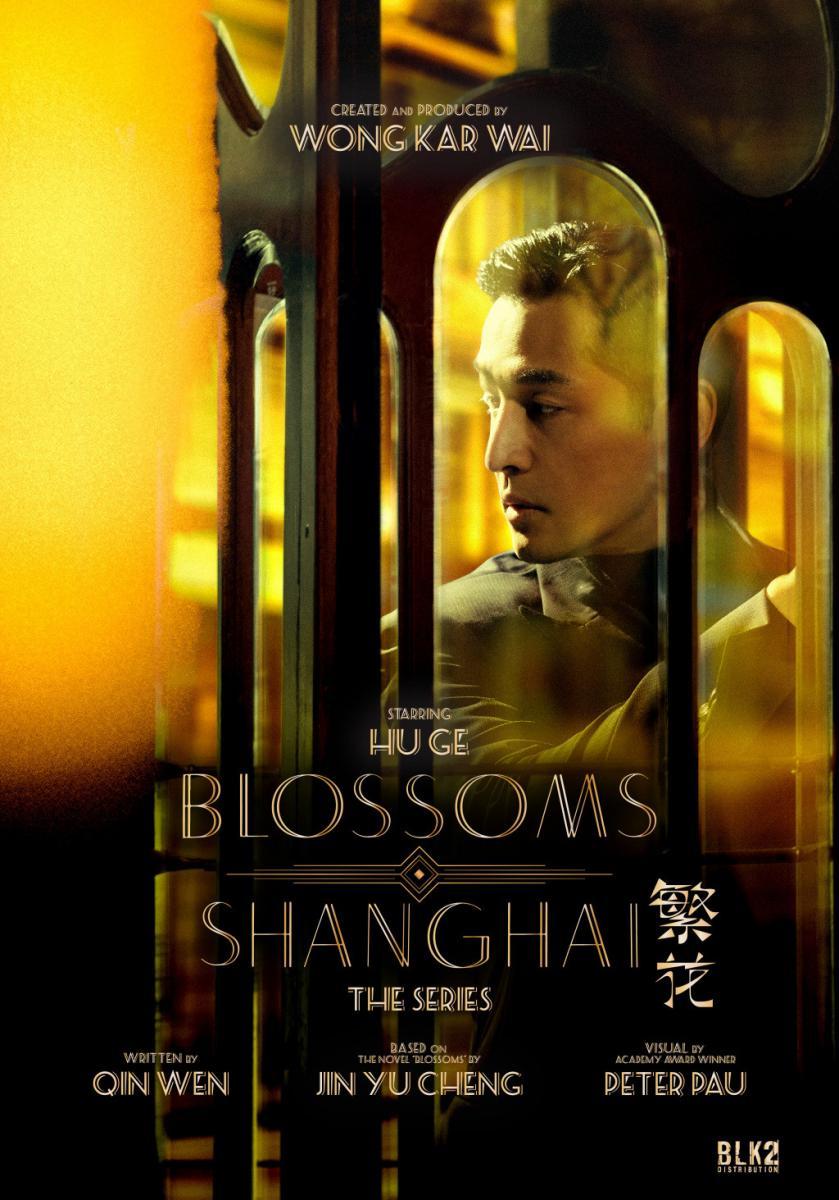

Dear readers,
This is the fifth consecutive year of News on China. In an effort to broaden Dongsheng’s goals but still bring you this important summary, we are introducing a new format. News on China will now be sent monthly. In addition, we will structure the summary according to the most important topics of the last month. We also will share more content beyond this digest, like articles, columns, and reportages about China and Global South development.
We hope you enjoy this new version of News on China. Let us know what you think and what we can do to improve or add to this format.
We would also like to take this opportunity to wish you a happy Chinese New Year. We hope you have a great year of the dragon and continue to join us!
– Dongsheng Editorial Collective
If you don’t have much time, here is what you should know:
- China strengthens its role as an international peace broker by intervening in multiple international conflicts.
- China supports Palestine’s full UN membership.
- PetroChina now controls Iraq’s largest oil field.
- Taiwan’s separatist ruling party won the elections, but the island has less and less international recognition.
China exceeded its target of 5% growth in 2023
According to preliminary estimates, GDP increased by 5.2% from the previous year. Meanwhile, the US economy only grew by 2.5%, France 0.9%, and Germany’s even decreased by 0.3%. Total grain production in 2023 was 695.41 million tons, an increase of 8.88 million tons from the previous year. Since 2022, the population has decreased by more than 2 million. The urbanization rate was 66.16%, 0.94 percentage points higher than at the end of 2022.

Taiwan: elections and less international recognition
Taiwan’s ruling Democratic Progressive Party (DPP) won the presidential elections with more than 40% of the votes. Lai Ching-te is the new regional leader of the island, but the ruling party lost its legislative majority. Let us recall that the DPP has a more pro-independence tendency and close ties with the United States, while the opposition is committed to a more friendly relationship with mainland China. The two opposition parties, the Kuomintang and the Taiwan People’s Party, had announced a joint list that did not materialize due to disagreements on who should head it.
However, international recognition of the island is on the wane. Following Honduras’ recognition of the One China principle last year, Nauru has also severed diplomatic ties with Taiwan and established official relations with the PRC to adhere to the same principle. The Chinese island is now only recognized by 12 countries, although it could soon be 11: the president-elect of Tuvalu promised to recognize the People’s Republic of China, although the official announcement is not yet formalized.
China, international mediator
The first month of the year was marked by multiple mediations by China between different countries or groups in the world. After border bombings that left 12 people dead, Pakistan and Iran de-escalated tensions thanks to successful mediation by China and Saudi Arabia. Saudi Arabia also mediated between the United States, Iraq, and Iran over the escalation between these countries. This mediation is undoubtedly a consequence of the restoration of relations between Saudi Arabia and Iran, thanks to negotiations led by China. On the other hand, the Myanmar army agreed to an immediate ceasefire with an alliance of armed ethnic groups after some clashes near the border with China, and the Chinese government said to have negotiated the agreement.
Finally, after the Davos Forum, Zelensky, president of Ukraine, asked China to broker a future peace process with Russia. The United States also asked China to mediate in the Red Sea conflict with the Ansar Allah group, also known as the Houthis of Yemen. Chinese Foreign Minister Wang Yi and U.S. National Security Advisor Jake Sullivan met in Thailand to make progress on this issue.
Diplomacy at the beginning of the year
Since the new outbreak of the Israeli-Palestinian conflict, China has advocated a two-state solution (in line with Arab countries), the creation of an independent Palestinian state and a concrete roadmap for an international peace conference. Now, it has taken a new step by calling for full Palestinian membership in the UN. Should there be a vote on this proposal, the United States would not have veto power as in other UN initiatives.

Wang Yi with Brazilian Foreign Minister Mauro Vieira, on the occasion of the 50th anniversary of bilateral relations between the two countries [Ministry of Foreign Affairs of China]
During January, Foreign Secretary Wang Yi visited seven countries on two continents in just seven days: Brazil, Togo, Jamaica, Egypt, Tunisia, and Ivory Coast. This intense trip marks a Chinese diplomatic agenda directed towards the countries of the Global South, with a special focus on Africa. Also, this month, the G77 held its 3rd South Summit. China has been cooperating and participating with this bloc since the 1990s, and at the summit, Chinese Vice Premier Liu Guozhong said that the “collective rise” of the countries of the South is “unstoppable”, but the impact of the old “international economic and political order remains”.
New year, new agreements
Bolivia’s state-owned YLB signed a new agreement with the Chinese consortium formed by CATL, BRUMP, and CMOC to develop a lithium carbonate plant, adding value at source. This is the second agreement that Bolivia signed with CATL: in January last year, they agreed to construct two industrial complexes that are expected to produce 50,000 tons of lithium carbonate per year, with an initial investment of US$ 1 billion and a total investment that could reach US$ 9.9 billion.
In June, YLB signed two other agreements, totalling US$ 1.4 billion, with China’s Citic Guoan Group and Russia’s Uranium One Group for two more lithium carbonate production plants, which should reach 45,000 tons annually.
Despite having the largest lithium reserves in the world (23.6% of the world’s total), Bolivia still has little capacity to industrialize it. Between January and November 2022, it produced just 635.5 tons of lithium carbonate. But thanks to this type of agreement, which it signed with both Chinese and Russian companies, it could reach almost 100,000 tons by 2025.
BYD, the Chinese electric car company, will install its first factory outside Asia in Camaçari, Brazil. It is estimated the factory will create more than 10,000 jobs and the Chinese will invest more than US$ 605 million. Last year, BYD caught up with and, in many countries, even surpassed Tesla in sales. Tesla CEO Elon Musk even called on the US to apply trade barriers to the Chinese company. These days, a video of Musk from 2011, just 13 years ago, went viral, where he mocked the possibility of BYD being a real competitor to Tesla.
Finally, Iraq’s largest oil field, one of the largest in the world, is now majority controlled by PetroChina. ExxonMobil has controlled it since 2003 but has now ceded it to the Chinese company. Iraq is now China’s third-largest oil supplier , behind Russia and Saudi Arabia and, like Russia, sells it in yuan.
Inside China’s Culture
Blossoms Shanghai (TV series, 2023)
The 30-episode series is set in 20th century Shanghai, and tries to recover the feelings of its inhabitants in the period of reform and opening up. For that, the series hired Shanghainese actors and implemented extensive filming days, even hiding the camera to capture the performances more naturally. Based on the novel by Jin Yucheng and directed by Wong Kar-wai, the series took 3 years to produce and is already shaping up to be one of this year’s favorites.

Subscribe to News on China. The digest is published every Saturday in English, Spanish, and Portuguese.
Follow our social media channels:
- Twitter: @DongshengNews
- Telegram: News on China
- Instagram: @DongshengNews
- YouTube: Dongsheng News
- Facebook: Dongsheng News
- TikTok: @dongshengnews





